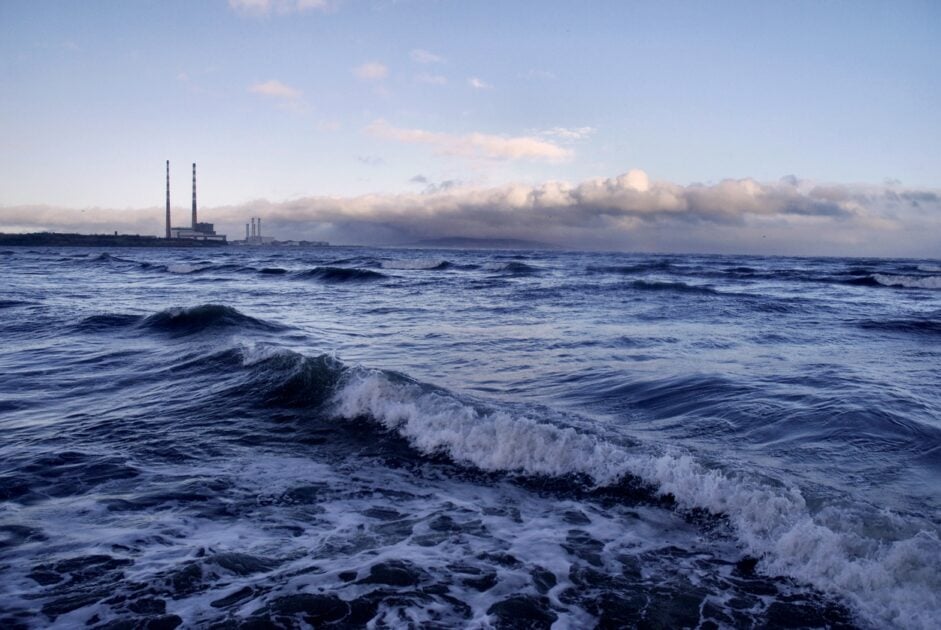9 facts about climate change
Learning the facts around climate change allows us to start a conversation on what we can do to tackle it

Climate change has become an important issue for many people across the world, especially young people who feel their future is at risk because of the effects of climate change.
In order to fight climate change, we need to understand what climate change is and what it means for the planet and for us in our everyday lives.
9 facts about climate change
Knowing the facts about climate change can help you to engage in discussions around what is happening to our planet and what we need to do to stop global warming.
Fact 1: Most of the increase in global temperatures since 1950 has been caused by human activity.
While there are some causes of climate change that are natural, like volcanic eruptions, the reason we are facing a climate crisis now is because of human activity. The main causes of climate change through human activity include:
- Burning fossil fuels for energy
- Intense farming and agriculture to produce meat and crops
- Removing forests and trees to make space for other land uses
All of these activities release greenhouse gases that trap heat in the atmosphere, causing the global temperature to rise.
Fact 2: The average temperature of the Earth is determined by the greenhouse effect
Greenhouse gases are gases that trap heat in the atmosphere. When the sun passes through the atmosphere, the greenhouse gases absorb the radiation and prevent the heat from leaving the atmosphere. This is known as the greenhouse gas effect.
Without greenhouse gases, the average temperature on Earth would be far too cold to sustain life. However, when we add more greenhouse gases to the atmosphere through human activity, this causes more of the sun’s energy to get trapped in the atmosphere, heating up the Earth and causing global warming.
Greenhouse gases include Carbon Dioxide (CO2), which is usually produced by burning fossil fuels, and Methane (CH4), which is produced by livestock like cows when they digest food.
Fact 3: Global temperatures have increased by about 1° Celsius in the past century
Over the last 100 years, the average temperature on Earth has warmed by 1°C. In our day-to-day lives, we may not notice much of a difference if the temperature went up by one degree, but this temperature rise has had a significant impact on the planet.
The temperature is continuing to rise, and the past five years are, collectively, the warmest years in the modern record. Currently, countries around the world are working towards the targets set out in the Paris Agreement which aim to keep the global temperature rise below 2°C and limit it to 1.5°C if possible.
Fact 4: The United States is the second largest contributor to carbon dioxide (CO2) in our atmosphere
The US is home to only 4.4% of the world’s population, yet it is one of the biggest emitters of greenhouse gases. If everyone in the world burned fossil fuels and lived the way those in the US do, it would take four Earths to have enough resources for us all.
Ireland’s greenhouse gas emissions are the third highest per capita in the European Union, and this comes mainly from agriculture, transport, energy industries and residential emissions.
Fact 5: Arctic sea ice and glaciers are melting
One of the most well-known effects of global warming is that sea ice and glaciers in the Arctic are melting.
In 1910, the Glacier National Park in Montana in the United States was filled with approximately 150 glaciers. When the glaciers were recounted in 2017, this number had dropped to 26.
This melting ice will cause rises in sea level, and will increasingly affect people in areas that depend on water from melting glaciers for their drinking water.
Fact 6: Average sea level is expected to rise between 0.5 and 1.5 metres before the end of the century
As oceans continue to warm and expand, and land-based ice in Greenland, parts of the Antarctic, and mountain glaciers continue to melt, sea levels will rise. This will have an impact in many countries across the world, especially low-lying areas with high risk of extensive flooding, including parts of Ireland.
Fact 7: Rainforest destruction is a major cause of carbon dioxide release
Trees and forests are known as ‘carbon sinks’, because they store carbon dioxide as they grow. When humans cut down rainforests or they are destroyed by wildfires, large amounts of carbon dioxide are released into the atmosphere. This contributes to the greenhouse effect and increases the concentration of carbon dioxide in the atmosphere, contributing further to global warming.
Fact 8: Coral reefs are being destroyed
In the last 30 years, half of the world’s coral reefs have died. Human activity, as well as increased temperatures, has contributed significantly to coral bleaching. When the water becomes too warm, the algae living in the coral’s tissues leave. Algae provides the coral with most of its energy, and so it needs algae to survive. When the algae leaves, the coral becomes bleached and turn white or pale, leaving it vulnerable to disease.
This impacts fish and other species that make these corals their home. Between 2014 and 2017, the bleaching of the Northern Great Barrier Reef, combined with the impacts of cyclones, killed around 50% of its corals.
Fact 9: As global temperatures increase, our societies will find it harder to adapt to the changes this brings, and some species are more likely to go extinct
Climate change will increase existing risks and create new risks for both natural and human systems.
These risks are not shared equally, and are generally greater for disadvantaged people and communities. Coastal areas will be vulnerable to sea level rise, and some vulnerable island nations like the Maldives could disappear completely.
A large fraction of species face increased extinction risk due to climate change. For example, most plants cannot naturally shift where they live fast enough to keep up with current rates of climate change in most landscapes. Most small mammals and freshwater mollusks will not be able to keep up with these changes either.






